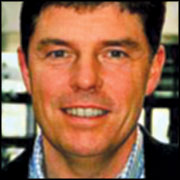The whole world on the same team
There's a lot that can go wrong when using low-cost resources from
warmer climes. IFS believes it has found the right strategy.
 |
|
Thomas Petersson |
Setting up an international organization that spans the entire globe
can be fraught with difficulties. Many companies that have tested
offshoring have found that it costs more than it's worth. But for IFS,
an ERP supplier headquartered in Linkping, Sweden, investing in Sri
Lanka has been a real success.
At the end of 2008, the company opened a new branch in Kandy, a
district with 1.3 million inhabitants over 100 km inland from the
capital.
"We realized that many of our employees are from that area and wanted
to move back. As soon as it became known that we were opening a new
office, we received more than 40 applications," says Thomas Petersson,
whose job is to integrate IFS' international operations.
Well educated
Sri Lanka isn't a country most people would consider when it comes to
outsourcing. It's big, and most media references are to the civil war in
the north with the Tamil Tigers.
But when IFS was experiencing rapid growth in the late 1990s, the
company looked around for new technology resources, especially for
research and development.
That's how it ended up in the island republic southeast of India. Sri
Lanka had a number of advantages, one of which was closeness to IFS'
expanding operations in Asia. But above all, and unlike India, it was
possible to set up a strong recruitment process.
In Sri Lanka, IFS attracts highly educated graduates from state and
private universities, in particular programmers with the same level of
competence as Western applicants. "We've learnt along the way, and the
model for collaboration is one that we developed ourselves. The opening
of a new office in the country is a sign that we've been very
successful," says Petersson. |


